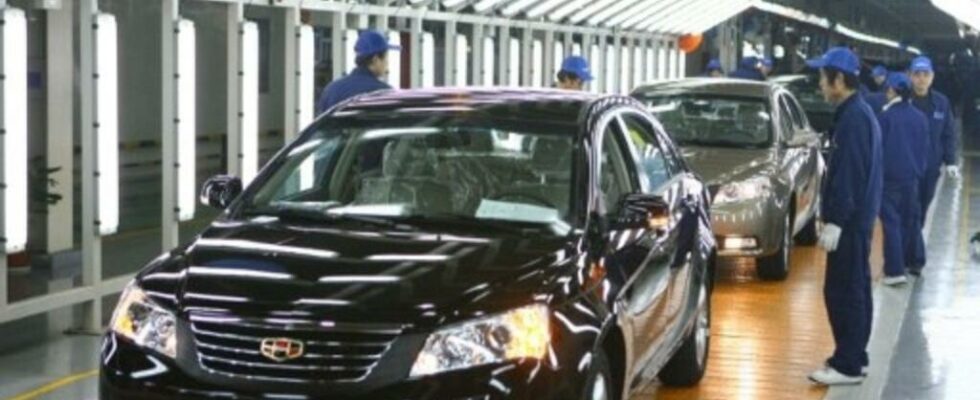Member countries of the European Union gave the green light on Friday October 4 to the imposition of customs duties on electric cars imported from China. Since then, reactions have multiplied: the Chinese Chamber of Commerce in Brussels denounces European “protectionism” while Berlin, for its part, fears a trade war with Beijing.
3 mins
The European Commission now has a free hand to tax Chinese imports more. This surcharge could go up to 35%, compared to 10% currently. A decision to which Beijing says “ firmly opposed “. It is a “ big disappointment » for the Chinese giant Geely.
The objective of the European executive is clearly stated: it is to defend the European automobile industry and its approximately 14 million jobs in the face of the onslaught of Chinese brands. The vote on Friday October 4 was preceded by a long anti-subsidy investigation. Brussels accused Beijing of illegally boosting its manufacturers on the European market thanks to prices kept artificially low.
Moreover, the dialogue with China continues, and could lead to a negotiated solution. But this skirmish is a reminder, more broadly, of the difficulties facing the automotive sector in Europe.
Also readEU: are taxes on Chinese imports enough to protect European industry?
The European automotive industry in crisis
The latest announcements from the German group Volkswagen on possible factory closures in Germany bear witness to this. The factories of the five largest European manufacturers are already experiencing successive periods of technical unemployment. This difficult context is slowing down investments, including in the construction of batteries.
The transition to electric has become a real challenge for European brands which have fallen behind China and its inexpensive electric cars. Currently, 8% of electric cars sold in Europe are Chinese and this is expected to almost double in 2025.
Also readChina, impossible to overtake on the electric car market?
But to get the sector out of this crisis, we need a real European industrial policy around the automobile. Industry players are calling for a European automobile pact. It would include support for major industrial projects and innovation, particularly regarding battery components and the processing of critical materials. But also a policy of purchasing bonuses, better coordinated at European level, and why not ecological aid.
Cognac producers fear reprisals
However, the EU’s decision to tax Chinese battery-powered cars worries cognac producers in France. The sector considers itself sacrificed and fears paying the price of the trade war between Brussels and Beijing. This is what Anthony Brun, president of the General Union of Winegrowers of the Cognac Appellation (UGVC), member of the National Interprofessional Cognac Bureau (BNIC) thinks: “ It’s a mixture of disappointment and anger that we feel “.
According to this official, trading houses and winegrowers recently received notifications from the Chinese authorities about a possible tax increase. “ They could be 35%. Oddly, it’s the same percentage as Chinese automobile taxes. », he concludes, while China is the second largest market for cognac and Armagnac after the United States.
Also readFrench cognac at the heart of the trade war with China
